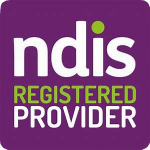How Much Money Does the NDIS give you?
The National Disability Insurance Scheme (NDIS) is an important initiative that provides invaluable support to people with disabilities, their families and carers.
It provides access to a range of services that support individuals in different phases of their lives and enables them to live more independent lives.
If you’re an Australian that has a permanent and significant disability, you may be wondering how much money the NDIS can give you and how you can structure it to provide you with the most benefit?
Well, here at Australian National Care (ANC) we’re here to answer your questions and set you on the right path. We’ve composed this blog to go into some of the specifics of the NDIS program and make sure you’re getting the most value out of your plan.
Is There a Set Amount of NDIS Funding?
Since the NDIS provides individualised funding, there is no set amount. Rather the program takes into account the personal needs and goals of each participant and allocates funding for reasonable and necessary support and services.
The NDIS will generally fund the following types of services:
● Daily personal activities
● Assistance with household tasks
● Therapeutic support services
● Mobility equipment and mobility household modifications
● Transport to enable participation
Types of Support Budgets
NDIS funding is structured around three types of support purposes, namely:
| Support Purpose | Details |
| Core | Supports participants to complete everyday activities and work towards achieving their goals. Examples include assistance with daily life, transport, and support with household and domestic tasks. |
| Capital | Relates to an investment in higher-cost purchases, such as assistive technologies or home modifications. |
| Capacity Building | Enables a participant to build and maintain their independence and life skills. Examples include: support coordination, improved living arrangements, and CB employment. |
To provide clarity and protection the NDIS has implemented a price guide with set unit cots. This helps to ensure providers charge reasonable amounts for their services and participants receive a more consistent level of support.
With this structure, the NDIS has been designed to provide flexibility, enabling adjustments to be made as participants’ needs change.
Alignment with other Government Benefits
While different types of government benefits (i.e. Centrelink) are subject to income tests, it’s important to note that Centrelink does not count NDIS support payments as income.
The NDIS exists to help people with a disability get the support they need, as such, any associated support payments are not classified as income and will not reduce income support payments from Centrelink.
On a wider scale, NDIS support payments are also exempt from tax and are not counted as income when calculating the Child Support Benefit.
Support Eligibility Criteria
One of the core aims of the NDIS is to help maximise a participant’s independence by working with the local mainstream government and community services that help them live an ordinary life. It does this by funding supports that are reasonable and necessary.
All support that the NDIS fund must meet all the NDIS funding criteria. This includes:
● the support is related to your disability
● the support will help you pursue your goals and aspirations
● the support will help you undertake activities that will increase your social and economic participation
● the support is value for money (i.e. costs are reasonable)
● the support is likely to be effective and beneficial for you, having regard to good practice and evidence
● the support is required to complement the informal supports you have available, by taking into account what is reasonable for families, carers, informal networks and the community to provide
● the support is most appropriately funded or provided by the NDIS
● the support is not more appropriately funded by another service system, agency, person or body, such as the education system or the health system
Could Your Application Be Rejected?
It’s important to factor in that not all support is covered. Your application may be rejected if a support falls within the below criteria:
● it is likely to cause harm to you or others
● it is not related to your disability
● it duplicates other supports delivered by the NDIS
● it is considered a day-to-day living cost (for example, rent, groceries or utility costs like your water bill) that are not attributable or caused by your disability support needs
● providing the support would be against the law
● it consists of income replacement
● it is the responsibility of other service systems to provide (for example, your state government, the education system, or the health system)
How to Manage NDIS Funding
There are three options to manage your NDIS funding; self-managed, plan-managed and National Disability Insurance Agency (NDIA)-managed. With flexibility in mind, it’s also possible to utilise a combination of NDIA-managed and Plan-managed funding.
| Plan Funding Method | Details |
| Self-management | The NDIA provides you with funding so you can access the supports that will best help you pursue your goals. This option gives you the flexibility and choice to decide what supports you buy to pursue your plan goals. However you or a person you have nominated will be responsible for all parts of your budget and reporting. |
| Plan-managed funding | The NDIA will provide funding in your plan to pay for a Plan Manager to take care of a range of responsibilities such as paying providers, tracking funds, and financial reporting. This is an excellent option if you’re looking to increase your financial and plan management skills and learn how to self-manage your plan. It will also enable you to tap into the valuable expertise of a plan manager who will increase your choice of providers, coordinate relevant payments, and oversee NDIS plan budget reports and budget oversight. |
| NDIA-managed funding | The NDIA pays your providers on your behalf. Under this option, the NDIA will manage your book-keeping and records of your spending.
You will still be able to choose from a range of NDIS registered providers and can utilise the “Myplace” portal to see what claims providers are making against your NDIS funding and keep track of your budget. |
Here at ANC, we understand that funding and coordination can be an overwhelming process. If you’re after additional support, we’ll provide you with the right level of guidance to help you choose the best way to manage your funds to meet your specific needs and circumstances.
The NDIS is an invaluable initiative that provides support to Australians with a disability, their families, and their carers. It has helped many people with a disability to receive the support they require to live their everyday life comfortably and independently.
While the scheme is an excellent way to provide funding for people who need it the most, careful consideration needs to be given in order to ensure that all the relevant criteria are met and a plan can be tailored to suit an individual’s specific needs.
Here at ANC, we understand navigating through the NDIS can sometimes be a difficult and time-consuming process. As part of our people-first approach, we offer comprehensive NDIS plan management support services. We’ll get to know your unique needs and aspirations and then design a plan that is specifically tailored to meet your goals. We’ll take all the stress away and handle core aspects of your plan, all the while helping to build your skills and get exactly what you want out of your plan.
For any of your NDIS plan support needs, why not contact us today.
What is the NDIS?
The National Disability Insurance Scheme (NDIS) is an important initiative that provides invaluable support to people with disabilities, their families and carers. It provides access to a range of services that support individuals in different phases of their lives and enables them to live more independent lives. If you’re an Australian that has a permanent …
Learning Disabilities and Their Identification
The National Disability Insurance Scheme (NDIS) is an important initiative that provides invaluable support to people with disabilities, their families and carers. It provides access to a range of services that support individuals in different phases of their lives and enables them to live more independent lives. If you’re an Australian that has a permanent …


